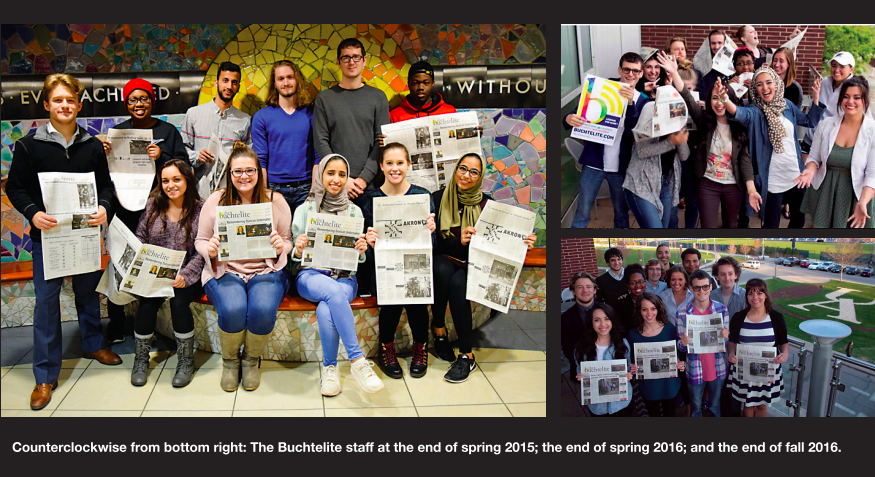“Jimmy Santiago Baca is an award-winning author and poet. He is also a felon. For that reason, the University of Akron decided to delay his book, A Place to Stand, as the Freshman Reading Selection until 2008. The Buchtelite reported on that decision and quoted associate provost Karla Mugler, who did not support the Common Reading Committee’s recommendation for Baca’s book.”
“
Jimmy Santiago Baca is an award-winning author and poet.
He is also a felon.
For that reason, the University of Akron decided to delay his book, A Place to Stand, as the Freshman Reading Selection until 2008.
The Buchtelite reported on that decision and quoted associate provost Karla Mugler, who did not support the Common Reading Committee’s recommendation for Baca’s book.
The university was still feeling the effects of heightened media attention on instances of felons residing on campus.
The first report came in March 2006, with the Akron Beacon Journal’s multi-part series about Charles Plinton, a graduate student who committed suicide the previous December. Plinton had been charged with drug trafficking after a confidential informant accused him of selling marijuana. The informant was a felon in his 30s, armed with a phony class schedule and paired with a roommate.
In the fall, a few more felons were discovered to be living in residence halls. One was in his 40s, and made news when he was arrested for robbing an elderly woman.
In light of the attention, UA changed its residence hall policy. But then, still reeling from the focus, some apparently thought it best if UA distanced itself from all felons.
Baca, the author, served a five-year prison sentence on drug charges as a young adult. That was after being abandoned by his parents and living in an orphanage.
While in prison, he taught himself to read and write. And then became a critically acclaimed author. His is truly a story of redemption.
Unfortunately, public relations motivated the university’s decision to delay Baca’s book.
We were surprised, but mostly disappointed.
Baca’s message is a powerful one, one that we firmly believe in.
We realized that we were in a position to invite Baca to campus, independent of the university. We generate income through advertising, and thus are self-supporting.
Sponsoring Baca’s visit, with the support of the Center for Conflict Management and Baca’s reduced fees, was expensive. The alternative – not allowing Baca to share his message of redemption – seemed to be more costly.
The notion that education unlocks doors and opens up opportunities should be central to the existence of the University of Akron, an urban campus without admission requirements.
Baca’s story is the epitome of that notion.
Hopefully, administrators realize that Baca’s message transcends his status as a felon and embrace it for what it is: a triumphant victory for the industry of education.
“

